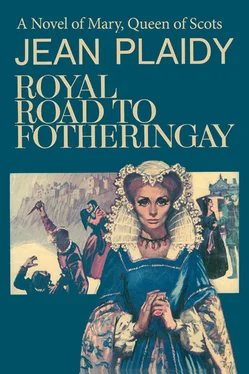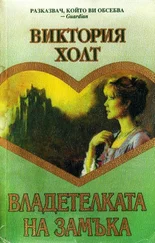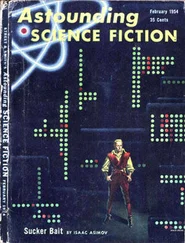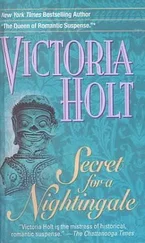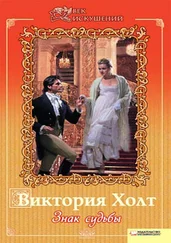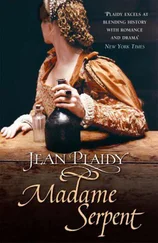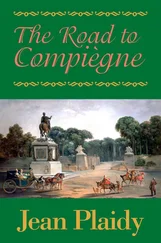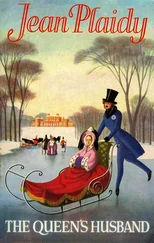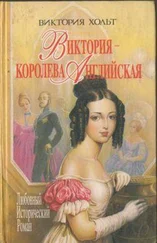“Yes, Madam.”
“And you agree with me that my marriage is the biggest mistake I ever made?”
“It was mine too, Madam. I do not forget that I urged you to this marriage.”
“Dear Davie! You did, it is true. But you could not have urged me to the altar if I had not wished to go. The mistake is mine, not yours. We have both been deceived, but let us not ponder on past errors. I have determined to banish him, right out of my heart and from my bed. He shall never share the crown.”
“No, Madam, he should not.”
“It is great good fortune that I have not already bestowed on him the Crown Matrimonial which would have given him powers equal to my own. Then we should have been too late. In future no documents are to be shown to him. We will have a stamp made with his name on it so that his signature will not be necessary on any documents, and you can affix it without consulting him. Consult him! What would be the good of his opinion!”
“Madam, he will be infuriated when he hears of this.”
“Davie, his fury matters not at all. I will show him that any power he wields comes from me. I shall never give him another chance to humiliate me as he has tonight.”
David was smiling; he was well pleased. His dignity was dear to him, and Darnley had insulted him time after time. David had known that the Queen must one day grow out of her infatuation, and he was glad that time had come.
“Madam,” he said at length, “you do well to cut Lord Darnley out of your policies. He has no conception of the important part you have to play in world politics. His own egoism, his own vanity are so large that they obscure his vision and he cannot see beyond them. Madam, never has your position been so secure. These dispatches from the King of Spain make his attitude clear. He is delighted with the turn of events in Scotland, and this happy state of affairs, he knows, has grown out of Your Majesty’s prompt action against the rebel lords. With Moray and his friends in England, and with Knox subdued, you have so pleased King Philip that he is planning to help you establish yourself even more firmly on the throne of Scotland, with the Catholic religion restored. Madam, I know that the King of Spain sees no reason why an attack—providing our affairs continue to improve—should not be made on our enemy beyond the Border. The King of Spain visualizes the day when the Protestant bastard is robbed of the crown she has no right to wear, and it adorns your own fair brow.”
“Queen of England and Scotland, David!” Her eyes shone. “That is what I want. If we were one country, then would these wasteful Border raids be discontinued. We are one land; we should stand together. That way lies peace, Davie.”
“Yes, Madam. It will be the happiest day of my life when I see you crowned Queen of England.”
“And Philip will truly further this end?”
“He has said so quite clearly … or as clearly as can be expected from one so cautious. I beg of Your Majesty to read this dispatch.”
They were bending over the table reading, when the door was burst open. Darnley stood watching them; his nightshirt was open at the neck, his hair disordered, his face blotchy, his eyes bloodshot from his recent carousal. He was still very drunk.
“I knew it!” he shouted. “So you are there then… you two together. I knew I’d catch you. I know it’s true what they say of you… furtively creeping away together…. The Queen of Scotland and a low-born music-maker. By God!”
The Queen said haughtily: “Go back to your apartment at once.”
Darnley laughed. “Do not think to deceive me, Madam.”
“I have no intention of deceiving you. I will tell you plainly that I am weary of your disgraceful behavior. Henceforth you and I live apart.”
Darnley reeled and hiccupped. “Oh… so he satisfies you, does he… this low-born …”
Mary rose and strode toward him; she could not control her rage. She took him by the hair and shook him. He stared at her in bleary wonderment.
“’Strue …” he said. “He’s your lover. That stunted go-by-the-ground, that—”
“Be quiet!” cried Mary. “I will have you taken to the Tolbooth.”
Darnley’s mouth fell open. “Come, Mary,” he spluttered. “Come to bed—”
She pushed him from her and he fell to the floor.
“David,” she said calmly, “call two of his men. They shall carry him back to bed. Now I shall go to mine. Good night, David.”
She went out, leaving Darnley lying on the floor in his drunken stupor.
DARNLEY SWAGGERED about the Court. If the Queen denied him her bed, others did not. He was watched—though he did not know this—by many lords of the Court. There was Maitland of Lethington, now affianced to Mary Fleming. He was privy to the secrets of the bedchamber. It was not that Flem wished to betray her mistress’s secrets; she loved her mistress second only to Lord Maitland himself. But Maitland was the cleverest statesman in Scotland; he had beguiled the English Queen and the English ambassador with his diplomacy; so it was not difficult for him to discover all he needed from his beloved Flem. Maitland’s vanity had been deeply wounded. He had been the Queen’s chief adviser, had employed his skillful diplomacy in England, and on returning to Scotland had found another in his place: David Rizzio, the upstart musician.
Clearly Scotland would be a happier place for Lord Maitland of Lethington if Rizzio were no longer there.
There was Ruthven—slowly dying of a wasting disease and determined to enjoy great power before he departed from this life. He too resented the Queens trust in her musician.
There was James Douglas, Earl of Morton, the most treacherous of them all, the man without scruples, the cruel lecher whose bastards were numerous. He was in touch with Moray who was trying to obtain the Queen’s pardon, and return to Scotland. Morton, feigning loyalty to Mary, was also in league with the English. He was fully aware of the Spanish plot to strengthen Scotland before making an attack on the English Queen’s throne; Cecil and Elizabeth were also aware of this plot. The unlucky Queen of Scots did not know how many of these gentlemen who surrounded her were spies for the champion of Protestantism, Elizabeth of England.
Moray was waiting to leap back into Scotland. So Morton, Maitland, Ruthven, with Argyle and others, met to discuss the new state of affairs, how to rid themselves of the upstart Rizzio whose foreign policy had led them to this pass, how to restore Moray and the exiled lords to their estates, how, when destroying Rizzio, to destroy also—or at least make impotent—the Queen herself.
Money and support were not lacking from England, for Elizabeth was now genuinely alarmed. Philip of Spain was behind this plot, and he could always alarm the English Queen. Philip sent money to Scotland, but the English, being warned of this through Cecil’s clever spy system, waylaid the ships which carried the treasure, captured it and brought it to London.
Philip’s advice to Mary was that, since the operations must be delayed, owing to the capture of the treasure, she should feign friendship with Elizabeth and lull the suspicions of the English.
Mary did not know that those noblemen who surrounded her throne were in the main spies for England. These men were Protestants and had no intention of allowing their country to return to the Catholic Faith, but it did not occur to their Queen that they could be so blatantly treacherous.
As for Rizzio himself, clever as he was and faithful to the Queen’s interest, he had his weakness. He could not resist strutting a little, each day adding something to his finery. An arrogance had crept into his manner. Were the great lords of Scotland going to endure the arrogance of this upstart? Was a musician, a player of the harp and the guitar, a singer in the Queen’s choir, to be set over the chieftains of Scotland?
Читать дальше
